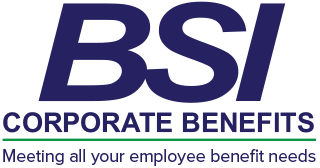Understanding your benefits: The difference between HSA and FSA accounts
As open enrollment season continues, it’s likely that you have heard terms like HSA and FSA. If you’re familiar with these types of accounts, great! If not, we’re here to help you understand these benefits that your employer might offer to you.
What is a Health Savings Account (HSA)?
Health savings accounts are tax-advantaged savings accounts that can be used to pay for qualified medical expenses. Funds contributed to an HSA can be withdrawn tax-free and used to pay deductibles, copayments, coinsurance, and other expenses. Employers who offer High Deductible Health Plans (HDHP) typically offer a HSA account option to their employees as a way to help offset healthcare costs.
In 2024, the maximum amount that individuals under 55 years old can put into their HSA will be $4,150 for individuals and $8,300 for families. For those 55 and above, the limit is $1,000 higher. Funds contributed to an HSA account never expire.
What is a Flexible Spending Account (FSA)?
Like an HSA, Flexible Spending Accounts allow you to set aside funds on a pre-tax basis, for specific healthcare and dependent care expenses. There are three types of FSA accounts, each with different qualifications:
- Health Care FSA (HCFSA) – Standard FSA that can be used to help cover medical, dental, and vision expenses.
- Limited Expense Health Care FSA (LEX HCFSA) – Generally can only be used to help cover qualified dental and vision expenses, not medical
- Dependent Care FSA (DCFSA) – Used to pay for qualified medical expenses for dependents (children under age 13 or adults who are physically or mentally unable to take care of themselves)
If your employer offers a FSA as part of your benefits package, you will have the option to make an FSA election for the following plan year during Open Enrollment. The amount that you choose will then be divided and paid into your FSA account incrementally, based on your organization’s pay schedule. The maximum amount an employee can contribute in 2024 is $3,050. With a HCFSA, your employer may allow participants to roll over unused funds up to $610 at the end of the plan year.
Where can you use an HSA or FSA?
If you’re wondering what expenses qualify for HSA payments, you can refer to the list below or check out Optum Financial’s qualified medical expense tool.
Examples of qualifying expenses include:
- Over-the-counter medications
- Menstrual products
- Sunscreen (SPF 15+)
- Eyeglasses and contacts
- Weight-loss programs*
- Dental care
- Breast pumps*
*Exceptions apply
If you have more questions about HSAs, check out the resources below for more information, or contact your Human Resources team or benefits administrator.
Resources:

